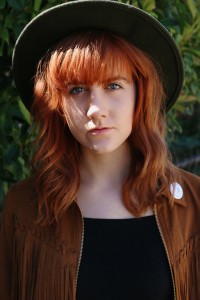Existential Blog


In between the day’s routine distractions, I have these moments where I look at my hands, and I remember what I am. I remember that I am a blood filled body, that I am a sentient animal, that my thought processes are only as strong as the intake of food and air I get, and that without that specific mix of chemicals, substances, and gases that my body requires, my “personhood” fades away.
I’m temporary.
I feel like I’m constantly reeled away from reality and looking at the world from the outside, which makes it so much harder to make sense of and live on the inside.
Daytime is a false comfort. It makes us feel like this is all that there is, that the drive to work and paying the cellphone bill are important tasks, that we’re safe on our Earth, our home planet, and that the distant suns in the sky are little lights up on our ceiling.
Sometimes I wish that was all I knew or thought, and that I believed in something as simple as a god who hears prayers and loves you no matter what.
But I don’t, and I can’t. I don’t know if I’ll always be searching for purpose or meaning or the cause of all this, but maybe I will.
I believe in mystery, in the unknown, in what can’t be known. I want to define it, to figure it out, but I can’t. If the smartest women and men in the world to have ever lived haven’t quite figured it out yet, I don’t think I will be able to either.
In Carl Sagan’s book, The Demon-Haunted World: Science as a Candle in the Dark, science is not explored as a series of questions, but rather, the only viable answer.
Sagan touches on the very uncertainty that I know too well:
“Humans may crave absolute certainty; they may aspire to it; they may pretend, as partisans of certain religions do, to have attained it. But the history of science — by far the most successful claim to knowledge accessible to humans — teaches that the most we can hope for is successive improvement in our understanding, learning from our mistakes, an asymptotic approach to the Universe, but with the proviso that absolute certainty will always elude us.”
I know that there is more in this universe than decay. Maybe not much more for humans (we make ourselves out to be far more important than we should, because we can ask questions and have opposable thumbs), but more for the greater whole. There are billions of stars in any direction, just like the one our tiny little planet depends on.
There are places in the universe where there are four suns in the sky, hundreds of moons, and diamond-like debris. In our own world, we look out into the sky and see a shining beacon, a swirling ball of fire and hydrogen and helium. At night, the moon shows her milky face, a comfort in the darkest hours. This surreal, dreamlike world is awesomely vast and awe-inspiringly infinite – and all that we know.
How could we not be drawn to believe in a mighty creator? Some grand designer who had it all figured out? I am drawn to the same belief of something greater, but perhaps not as purposeful. There are greater powers whose existence can be proven. These powers are bigger than us, bigger than the human race, and bigger than our very own Earth which will, inevitably, be swallowed by our exploding sun.
It is the same power that will cause our dying star to cave in on itself until matter is generated again, essentially re-birthing itself into a new star, repeating the same process for a few more billion years until it dies and recreates itself once more.
So maybe you could say I believe in solar fusion, or white dwarfs, or you could say I believe in the mystery of the universe. Or you could say that I’m still figuring it all out, because that works just as well.
In this vast, terrifying, star-saturated universe, we have this thing called “joy,” a chemical reaction to various situations or occurrences that makes us feel that our little lives are worth living. Over time, the human body evolved to construct itself of parts that would serve me well, including the very hands that I find myself staring at. These truths are amazing, powerful, and big enough to make me want to thank the all-knowing being that I can’t bring myself to believe in.
Since it seems that I will never be satisfied in my search for an explanation of “Why?” and “For what purpose?” I will unwillingly continue to be in awe of natural laws, of science, and what can be proven; but most of all, what cannot.